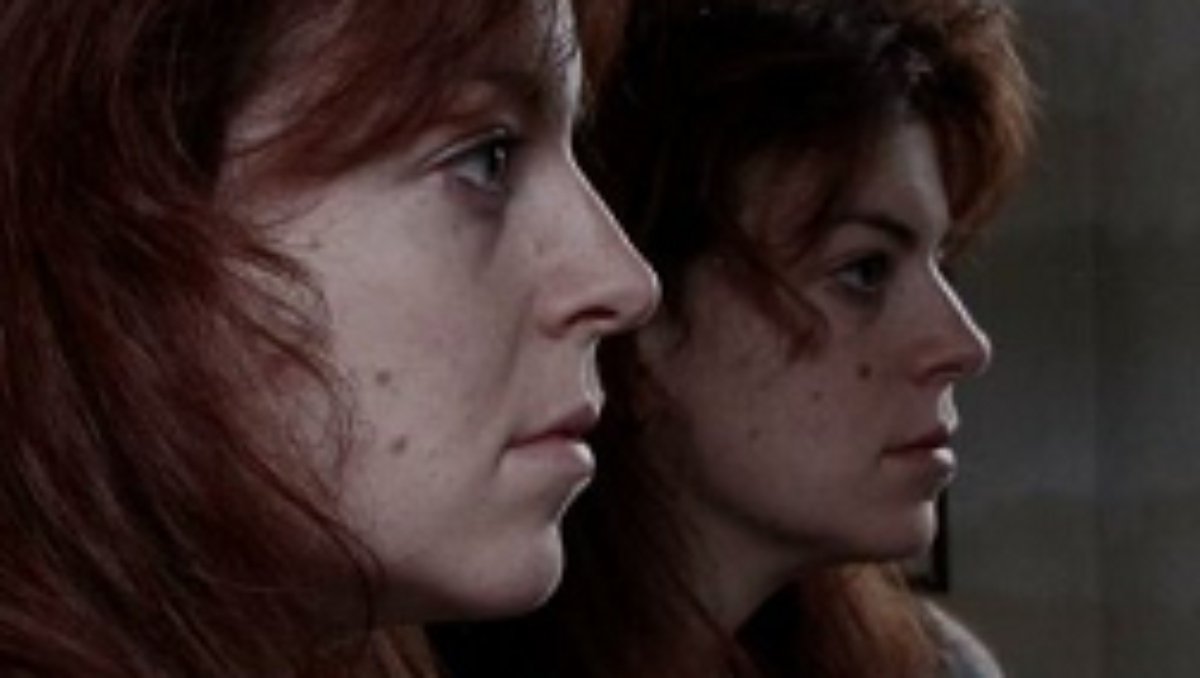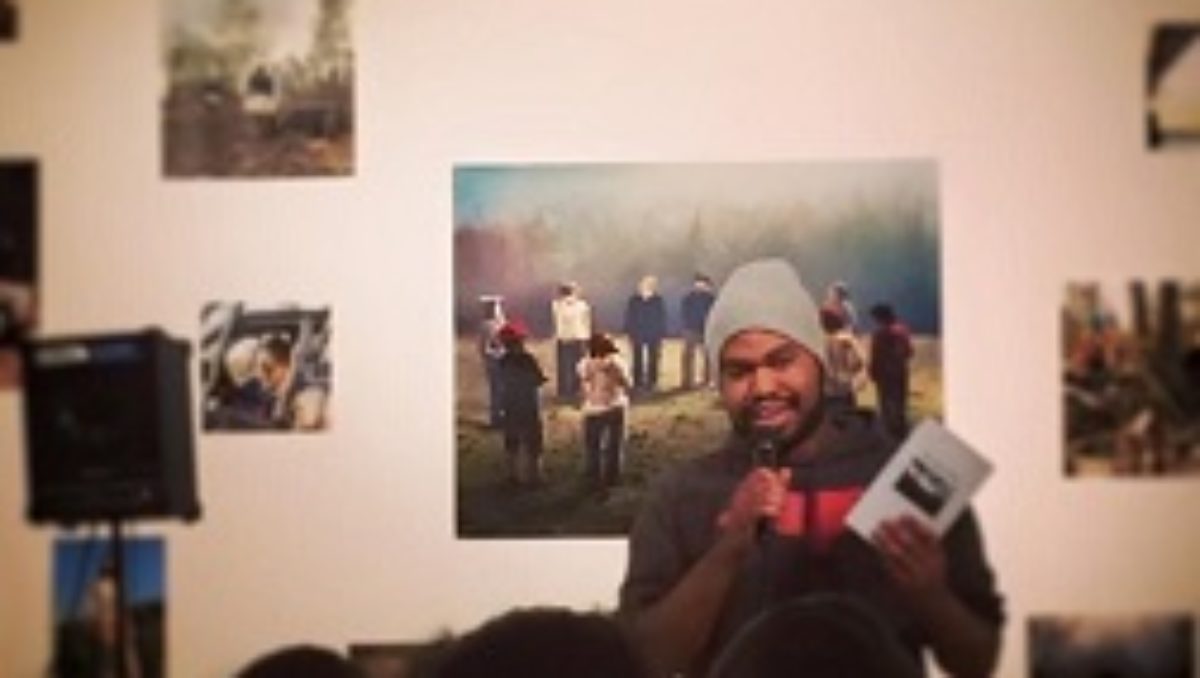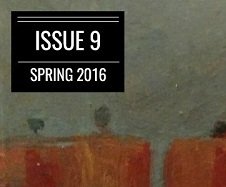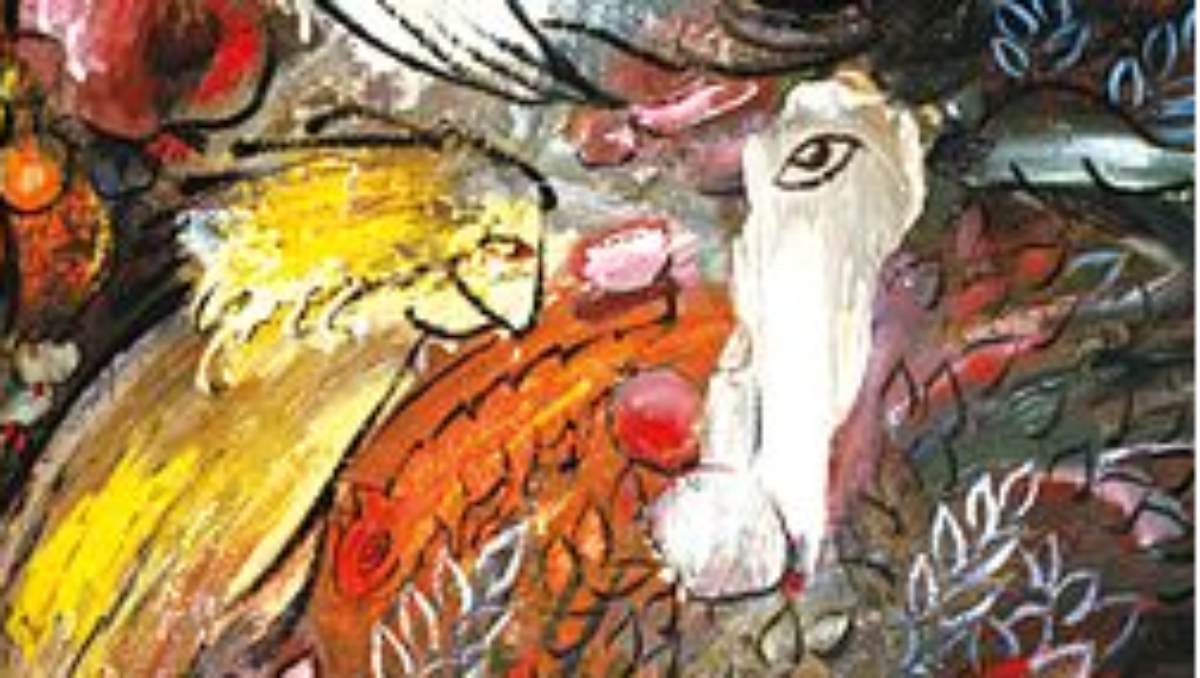shows on homepage
THE HOTEL by John Poch
He got out of his truck and composed himself. His new white shirt stuck to his lower back where he’d been sweating against the vinyl seat. She was in the hotel up there, and she might be looking down. It was seven o’clock exactly. The curbs, the sidewalks, and the asphalt were unbroken and clean. Maybe fifteen stories, it was a new hotel.
When he was halfway across the parking lot, he looked back at his truck. He liked the look of it in the last light. It was just washed, and the cam that he had dropped in only a month ago made a thumping and purring that got him looks at stoplights. Admiration and envy. The truck was almost thirty years old, battered and authentic. He liked the way it shifted on the column. He had nice forearms, and a girl could admire that without having to understand. The evening was cooling off, and he was relieved. The air conditioner was broken, and they’d have to accept what the weather would give them. He went in.
He got off the elevator, saw the brass plaque numbers, and figured the direction to her room. It was only three doors from the elevator. Outside the door lay a room service tray with some dirty dishes staggered and peeking out from a silver platter cover. It struck him as odd, but he didn’t think about it, and he knocked.
She came to the door. He was expecting a black dress, maybe something deeply red or blue. But she was in her pajamas. Her face was the same. Not so youthful around the eyes and the mouth, but he wanted to kiss her on her eyes and her mouth. They hugged in the doorway for a good while. She started pulling away first, and he thought to say something, but he just let her turn and go back to the rumpled bed where she plopped down and leaned back against the headboard.
Trying to show his old sense of humor, he said, “Are you good to go?”
“My stomach feels funny,” she said.
“Mine, too,” he said. “Am I overdressed or what?”
“I ate some room service,” she said.
“When?”
“Just now.”
He’d seen the dishes in the hall. He touched the TV with his hand, and it was warm. She had been watching it before he came.
“We were supposed to go out.”
She shrugged, tilting her head, squinting, giving him a look as if she were only a little sorry she’d disappointed him. He didn’t want to be mad at her, her pretty head tilted that way. On the drive to the hotel, he worried that they might fight at some point, and he was irritated already. They hadn’t seen each other in five years, and she pulls a stunt like this.
“Do you want me to rub your belly?” he said.
“No,” she said
When they were in college in Laramie, they used to lie in bed taking turns rubbing each other’s bellies while they talked about classes and their stupid jobs and stupid friends. They were such a comfort to each other then, holding each other when they were falling away from their parents into their own lives. They were sensitive in the way that others around them weren’t.
He asked, “We’re still going out, right?”
She looked apologetic, maybe. She looked at the wall. “I don’t think so,” she said.
He raised his eyebrows, perplexed, standing there in his white shirt and black shoes and clean blue jeans.
“I should go,” he said. His jaw was tight.
“Don’t go. Sit down for a while.” She smiled, but he couldn’t tell what it meant. What was a while.
“Why’d you go and eat? We were supposed to go out. Together.” He didn’t mean to plead with her.
“I don’t know. I was hungry.”
Him, he was not hungry. He had lost all appetite since she called out of the blue and said her company was sending her and her boss to Dallas for a conference and would he like to get together for dinner one night. It would be nice to see him again.
Now, even though he had no appetite, he wanted to go to dinner, to go out with her. Dinner had been her idea. She was supposed to ride in his truck that he didn’t have when he’d known her, and they might look at each other along the bench seat with the wind blowing on them as they spoke in raised voices so to be heard over the road noise and the pretty cam. He had been thinking how he would open the truck door for her.
The last time they went out, they had gone to a nice restaurant with candles. They fought and both cried right there at the table because he couldn’t find a way to make it work. He was the one who left. Their families tore them apart for a dozen different reasons. But they were kids then. Now they were adults. But she’d eaten already, and she was in her pajamas. He felt sick to his stomach. He didn’t want to let on about how mad he was, but what could he say?
“Well, this is a fine how-dee-do,” he said. He sat down in the hotel chair and sighed. The sweat on the lower part of his shirt was cold against his skin. “What now?”
“We can talk,” she said.
“OK, you start,” he said.
She looked at him with wide eyes. He had barked it, a little, and then he tried to undo the meanness in his tone. “You’re really pretty. You look great, you know, not the pajamas and all, but you look nice. Your hair is like I remember it. I like the color.”
“Thanks.”
They were supposed to go out. What brought this on? That she would order room service just to spite him?
He picked the card up off the table next to him, glanced at it quickly and said, “Maybe I could order something off the room service, too? But then my stomach would hurt.” He was sounding mean again, and he didn’t want to. “I had a couple nice places in mind.” He couldn’t get over it. The way it was going. He should kiss her on the cheek and say goodbye. He shouldn’t have come.
“I’m sorry,” she said. “We got through with our meeting, and I was just crazy hungry.”
Crazy, yes. Hungry, what the hell?
Two men walked by the hotel room door, and one was telling the other he should get out of mutual funds. Then it was quiet again. What was her boss like? Her boss must be crazy for her. She was beautiful. Her hair was brown, straight, with blond and reddish highlights, cut in bangs across the front. It was bobbed in the back, and around the sides toward the front it got longer and longer sharply. It would cut a man to look at her, the way her neck was bare. It would cut him right to the heart. Your eyes went from her brown eyes straight to her neck. He used to kiss and kiss her neck. If she were on top of him, she would finally tilt her head way back when they made love. And shudder. Her neck drove him crazy.
“How’s your boss?” he said.
“Larry? Oh, don’t worry,” she said. “He’s a creep.”
“I’m not worried,” he said. “I just wondered how the job is coming.” She worked for a company that sold frozen food to half the restaurants in America.
“We just look at spreadsheets and graphs all morning, and everybody tries to predict who’s going to buy what next year. I agree with what Larry says to make him look good. I write down what everybody says, and I act interested.”
Is she acting interested now? Not so much. They used to know each other without having to understand or gauge each other or think there was a strategy.
“Do you like Dallas?” he asked.
“It’s fine,” she said. “We haven’t been much outside the hotel. We’re not even close to downtown. I guess you know that.”
There was a lamp on the table. It was lying on its side, and the lampshade was askew.
“They’re supposed to come with a new light bulb,” she said.
Someone knocked at the door. He got up and opened it. A housekeeper stood there with a light bulb in hand. He thanked her, took it, and closed the door. He set it beside the lamp, and sat back down.
“What timing!” she laughed.
“That’s pretty weird,” he said. “What could it mean?” He figured he should fix it for her. He got back up and screwed the light bulb into the lamp, tested it, turned it back off, put the lampshade on, and then turned it on. He could feel her looking at him, at his clean white shirt, and he wondered how she hated him to spite him so.
“Would you mind if I sat over there beside you?” he said. He wanted to try.
“No, that’s fine.”
He wasn’t sure from her answer whether she was suggesting he stay put or if he could move over there. He got up and went over to the bed. She moved over a little, making room for him, and he sat down.
He gave her his open palm. She took his hand. Out of pity, it seemed. She didn’t hold it affectionately, but she held it. They sat there for a while like that. Like two people shaking hands on a deal neither of them would honor. But she turned his hand over and began to stroke his hand with her other hand. “Kiss me on the cheek,” she said.
He leaned into her as if leaning into a knife. It took some doing. He kissed her gently, but he pulled back to look at her. To take her in. He wanted to kiss her neck, but he was afraid she would push him away. She looked at him hard, her eyes unsympathetic.
“You were the one who left Laramie,” she said. “You never asked me to come with you.”
“That was a long time ago,” he said. “But here we are.”
He had tears welling up, but he quenched them by wrinkling his nose and blinking hard. She looked, it seemed, through him. No tears at all.
“There you are,” she said. “There you have it.”
“I think I should go,” he said. He stood up a little too quickly. He didn’t want to be dramatic.
“I’m not soft any more,” she said.
“I see that,” he said. Through the windows’ sheer curtains, he could see it was getting dark outside. “I wish we could have gone out, though.” As if there were one last chance. He had so much to say to her. Or he thought he would have so much to say once they got to talking. At the restaurant.
“It was good to see you,” she said, as he walked to the door.
“Was it?” he said, and he wasn’t sure she heard him. She was still there leaning up against the headboard. He didn’t look back. He opened the door and walked out and closed it.
When they used to be out walking home from a bar or from school or anything, she would fall on him so he’d have to catch her in his arms. It was a game they played. She’d just fall helpless into him like she couldn’t stand up. She’d laugh and laugh when she was doing that. He remembered walking home from the bars with her one night. A curb next to the sidewalk gradually rose into a garden wall, and she walked it like a balance beam, and he had to catch her when she fell on him from about three feet high. He spun her around then, and the stars spun and her laughing spun. You’re strong as a tree, she said. Rock-a-bye baby, he said. Those days he felt like he was swallowed into an easy whirlpool of strength and comfort. This was love.
Now in the hotel hallway he was dizzy, and he thought he might fall down. His knees wouldn’t hold him up. His couldn’t swallow, and he felt like he might be sick. He walked slowly, his hand along the thick wallpaper to steady himself. He couldn’t turn around and go back to the room.
He made it to the elevator and rode down. The lobby was a little busier than when he had arrived. People were meeting and making plans for going out, and three women with cocktail dresses and funny flashing antennae on their heads were raising a ruckus in the hotel bar.
Walking to the truck, he felt self-conscious in his white shirt and no jacket. He should have worn a jacket. He drove without the radio on. His mind was back in Laramie the whole trip home. There was a townie bar where they had played pool. They drank cheap bottles of beer, and sometimes she smoked. In the coldest part of winter, walking down the street, sometimes your eyelids would freeze together when you blinked. Once in the summer, they lay out under the stars all night until the sun was coming up. He remembered she kept a red and black plaid blanket in the back of her car for any sudden picnic. Everything was simpler back then and understood. There was no worry about yesterday or tomorrow. No sterile hotels or busy highways.
He walked into his house, and he climbed the stairs to his room. His wife was lying in bed, reading a doll collector’s magazine. He went into the bathroom and brushed his teeth, wondering if back at the hotel she was still leaning against the headboard and if she had turned the TV back on. Did she go down to the hotel bar? Was she sleeping by now?
When he came out of the bathroom, he fell onto the bed. He couldn’t keep himself from crying. He was sobbing. His wife put her hand on him and said, “What’s wrong? What’s wrong?”
ISO by Sophie Klahr
wanted: a width, a girth. vessel me, burden me, break me into bearing:
take this sluice to be swollen, worn, heavy in gait, o
give me a heft to hold, his or her own I am, owing surrender:
the deed to a bastard house I lost—
there is no one to ask to bear with me
our unborn. who is our? it takes a plural to produce
the thing that’s gone— what we?
who were you anyway?
BROWNING UP NICELY by S.M. Brodie
The 1970’s were full of firsts for many people. Richard Nixon became the first president to resign from office. Raul Castro became the first Latino to hold the office of Governor in the great State of Arizona. My mother, Anita Ortiz, became the first in her proud, Hispanic family to marry an Anglo. Thomas Gordon, my father, became the first in his Anglo family to marry a divorced, single mother of non-European descent, although they were fond of describing her as “Spanish.” Thomas and Anita then went on to have me, their first child together, but not their first child. My half-brother, Luis, was my mother’s first.
Shortly after my birth, my mother returned to work and started attending college. While school was in session for my mom and brother, my dad’s mother watched me during the day. Until I started attending school myself, this is where I spent half of my life. My father’s family lived across the city and a world away.
My grandparent’s white ranch house sat on a little over an acre, nestled between old orange groves. Set far back from the street, the long drive stretched out lazily next to the neat rows and rows of trees that hid the neighbors’ houses. Out behind the drive and the garage was the back acreage, where my grandparents always kept a couple head of cattle and let the neighbors’ horses graze.
The little ranch had a rhythm as steady as a heartbeat. Every morning that I was there, my grandmother would give my grandfather a lunch packed in a shiny metal lunchbox, a thermos full of coffee, and a kiss. In the morning, he always smelled like a combination of mustache wax and aftershave, his wavy, grey hair neatly parted and combed. He would walk out the door, off to his job of designing jet and rocket fuel, with a pen and mechanical pencil in his front pocket, his keys, and a pack of Camel cigarettes in his hand. In this house, everyone spoke English without an accent or a brogue and the breeze carried with it the sweet smell orange of blossoms and fresh cut grass.
Summers in Arizona could give the Devil heat rash. My mom drove a 1973 AMC Hornet, which had a special setting on the air conditioner for “desert climates.” This did nothing to prevent crayons from melting into the floor mats, vinyl records from warping, or the big metal seat belt buckles from branding us while we waited for the air conditioning to kick in. My brother and I would threaten to report my folks for child abuse if they tried to drive us across town during the summer. So, if my parents ever needed a sitter in the evenings, on the weekends, or during the summertime, we stayed with someone from my mom’s large extended family, all of whom seemed to live within a five-mile radius of us. It was within this tight circle that I spend the other half of my childhood.
When I went to my grandparent’s house, the routine was always the same. My mother walked me up to the house. The adults exchanged pleasantries. My mother told my grandmother when she could expect her to return. My mother gave me a kiss and I waves goodbye from the back porch.
With my mother’s family, it was a crapshoot. We’d drive up to one of the aunts’ houses; my brother and I tumbled out of the car like excited puppies, tripping over ourselves to get to the house and out of the sun. We’d knock on the door and if someone answered, we’d turn, wave to our parent and go inside. As soon as we passed the threshold, they’d back out of the drive. There were no arrangements made, no pick up times discussed. If the door opened, we went inside. If not, we trudged back to the idling car, reluctantly got back in, drove a couple blocks in any direction, and repeated the process. The first house we usually hit was my Tia Gloria’s house.
Gloria was my mother’s oldest sister. She and my uncle Hector had five kids ranging in age from their early twenties to just a few years older than Luis. All seven of them lived in a little yellow house in the middle of the barrio. Their back yard was home to an old pickup that had wood running boards that creaked and moaned when you stepped on them, and a handful of wiry chickens that left their eggs all over the yard including in bed of the truck. Two mutts named Frito and Lay protected the chickens from cats and hawks and other poachers, but mostly they slept in the shade under the truck.
In this house, accents came and went, thicken and soften depending on the audience, the mood, or the weather. Some spoke Spanish heavily peppered with English, other English sprinkled with Spanish phrases and slang.
Here the air was heavy with the sticky, sweet smell of cooked citrus juice coming from the big brick processing plant that made the syrup for Squirt soda at the end of the street. Any noise coming from the plant was drown out by kids laughing, dogs barking, music playing, and people talking to each other over fences and through the open windows and screen doors. The only time the noise subsided was when everyone headed inside for dinner.
By the time the Ortega family settled in for a meal around their Formica and metal table, my Tia Gloria and my cousin Sofia had been cooking for forever. It was amazing to watch those two women gracefully glide and spin around each other in that tiny kitchen. Even the food seemed to be a part of the dance, somehow popping, bubbling, and sizzling in time to the Tito or Celia Cruz songs coming from the radio that sat on top of the fridge.
I so wanted to be a part of the culinary ballet, not knowing that I was witnessing was a finely choreographed performance, honed over years of practice. When I rushed in and begged to help, I did nothing but throw them off their steps. As a five year old, they banished me from the kitchen, ordering me to go play. But I didn’t. I perched on the arm of the couch, so I still had a clear view of their dance, and sulked.
Tio Hector came home from working at one of the farms that used to surround the Valley and found me pouting in his living room. Every day for the better part of a week, he walked in the door, kiss me on the top of my depressed little head, and ask “¿Que pasa, mijita?”
“Nada,” I responded, trying to look as dejected as possible.
“¿Por que?”
“I’m not allowed to help. I’m too little.”
“Then go play.”
“It’s too hot.”
Then he patted me on the shoulder as if he understood the troubles weighing down my soul, and he headed to the shower to wash off the bits and pieces of his day that stuck to him. But after a few days, he’d had enough.
“¿Quieres ayudarme?” he asked me.
I paused before I responded to his invitation to help. I hoped that it didn’t involve standing in the backyard, waiting to fetch tools or beer while he worked on that ancient truck. But, even that was better than doing nothing.
“Si, como no.” I finally answered.
Every day after he came home and showered, he worked with me so I could master my new responsibilities. The first day I watched.
“Mira, mijita,” he began. “Take one of the papeles and lay it like this.”
He laid the tiny rectangular sheet of paper on the coffee table in front of us. He sat on the sofa and I knelt on the floor between his bare feet, both of us facing the table. He hunched over me, so that the paper and his hands were directly in front of me. As I watched, I could smell the Ivory soap on his freshly scrubbed skin. He grabbed a pinch of what looked like pencil shavings from a pouch, and laid them in a neat little row on the edge of the paper.
“Mira, only this much. No mas or it falls out.” He put my index finger over the row.
“See, only as wide as your finger,” he instructed. Then he nimbly rolled it into a tight little tube with his leathered and calloused fingers. He picked it up and held it out at my eye level.
“Pick it up like this. Okay? With the edge of the paper facing up so you can lick it like an envelope.” I turned to watch him quickly swipe his tongue along the edge.
“Not too much vavas. You don’t want to make it wet.” He continued his lesson. “Okay, this is important. Gently run your finger over the edge to press it down. Remember, gently, just to get paper to stay down. Don’t pinch it or mush it.”
We practiced that way every evening for days. The first cigarette, I watched. The second, we did together, his sun baked farm hands guiding mine, still baby pink. The third, did on my own. By the end of the week, I graduated. From there on, it was my job to have three cigarettes waiting for Tio Hector. After he got home and showered, I went in the backyard with him and looked for any eggs the chickens may have hidden while he smoked the first cigarette. When he was done, we washed up for dinner. I never saw him smoke the other two. He saved them for just before bed and right after breakfast the next day.
One day my mom came earlier than usual to pick us up.
“Hola,” she called as she walked through the door. Tia Gloria and Sofia paused just long enough to stick their heads out from the kitchen, returned the greeting, and returned to cooking.
“Monica, go find Luis and tell him it’s time to go,” my mom ordered.
“Just a second,” I said as I brought a tightly rolled cigarette up to my lips and licked the edge.
She just stood there, dumbfounded, and watched me as I smoothed the paper down and set the cigarette next to the other one I had finished just before she walked in the door.
“What are you doing?” she finally asked.
“Making cigarettes for Tio Hector,” I proudly stated. “He taught me.”
“It’s true,” Tio Hector said, his voice coming from behind my mother, which made her jumped a little. He was beaming at me, his pride nearly matching my own. My mother’s face did not mirror ours.
“I don’t think she should be doing that, Hector.” She sounded worried. My heart sank. I didn’t know why she wasn’t happy too, but I knew enough that it worried me. However, my uncle didn’t stop smiling at me even for a second.
“Why?” he asked.
I watched her struggle for an answer. Then, after what seemed like an extremely long time, she finally offered something up.
“Well, it doesn’t seem right that she knows how to roll cigarettes but she can’t even tie her own shoes yet.” I watched both my mom and tio’s faces.
“Maybe she should learn how to do that first,” she offered.
“¡Aye, mija!” Tio Hector exclaimed dramatically putting his hands over his heart and rolling his eyes. “You don’t know how to tie your shoes?”
I shrugged my shoulders, not quite understanding why this was a big deal. The flip-flops and sandals that I wore during the summer didn’t have laces to tie. Tio Hector smiled down at me and put his hand out. I smiled back and handed him his three neatly rolled smokes.
“That’s fine,” my Tio Hector said to my mother. As I stood and started to follow her out the door, Tio Hector asked me, “Where’s my hug?” As I hugged him, he lifted me up, kissed me on the cheek, and softly said, “Gracias, muñeca.”
The next day, all of my family descended on our house for my brother’s birthday. Most of the houses in our neighborhood were older, filled with what my dad called “blue collar families”, and had tidy yards with a bike or skateboard strewn under a tree or on the sidewalk. And almost all of them had swimming pools.
Our swimming pool was ancient and the plaster would peel layers of skin from your feet. But it was ours and in the summer, we practically lived in it. We were also the only ones in the family on either side with a pool. So everyone showed up any time there was an excuse to use it, like my brother’s birthday.
I loved it when my Grandpa Gordon would come over to swim. He taught me how to swim like a frog and side scissor kick. He’d throw coins into the deep end, and my brother and I would see how many we could grab before we had to come up for air. When we got tired, my grandpa and I would share an inner tube or raft, and just float around until it was time to eat.
After my grandfather had shared a second piece of cake with me, he was sitting on the pool deck, smoking a cigarette. I sat down next to him and picked up his pack of Camels.
“How many are in here?” I asked.
“I don’t know,” he replied. “Let’s look on the package.”
I examined the box until I found the number.
“20!” I exclaimed. “Wow. It would take a long time to make all those.”
“They have machines that do it really fast,” my grandpa assured me as I handed him his pack.
My mom was walking around the patio and pool deck collecting plates and glasses. She called me over to help carry the stuff she’d gathered.
“Don’t talk to Grandma and Grandpa Gordon about cigarettes. Okay?” she said quietly. She had that same look on her face as before, as if we were going to get in trouble.
“Why?” I asked, all my concern punctuating my question.
“Well, it’s just not good manners, I guess.” She said, her eyes hopeful that I would either understand or just leave it there.
“Is it bad?” I asked and heard her let out an exacerbated sigh.
“No, not bad. It’s just not polite.”
The whole next week at the Ortega house, after Tio Hector came home, I learned to tie shoes. He taught me as patiently and methodically as he had before. He brought out every shoe his kids owned and set them out on the floor in front of the TV. I practiced, while he washed up. If I knotted up one shoe, which I inevitably did, I just moved on to the next one. By the end of the week, when our mother came to get us, I eagerly showed off my new skill.
After that, I went back to rolling cigarettes. It took a few days for my mom to catch on that I had started production again. But when she saw the three cigarettes waiting for my uncle on the coffee table, the look returned to her face.
“I don’t think Monica should make cigarettes anymore,” she announced as Tio Hector walked into the living room.
His thick black hair was still wet from his shower and he had slicked it back. He looked like Ricky Ricardo in cuffed blue jeans and a white t-shirt instead of a suit.
“¿Por que?” he asked. His voice sounded like he was tired of this conversation before it began.
“It’s just not right,” she began and looked up to see how even that much of the objection registered with him. He just looked at her and then at me, waiting to hear more.
“The tobacco is full of chemicals and nasty stuff,” she continued. “She shouldn’t be touching it. What if it turns her fingers brown?”
Tio Hector smirked at the idea. Then he looked her straight in the eye. “That’s not the problem,” he decided. “What’s wrong?”
My mom flushed, took a deep breath, and then blurted out, “White kids don’t roll cigarettes.” She took another deep breath. “What are the Gordons going to say when they find out their granddaughter is rolling cigarettes?”
Although she said everything very calmly and quietly, she looked embarrassed and guilty.
“I think they have machines that make cigarettes,” I offered, trying to help. However, this only made her more upset. Tio Hector went over to her, gently wrapped her in his arms, and hugged her for a minute.
“Calmate,” I heard him tell her. “Esta bien.”
He stepped back and swept her hair away from her face with his finger. “You can’t avoid it, Anita,” he said. “She’s going to brown up sooner or later, and not because of the tobacco. I promise you, they will love her either way.”
She sighed and the redness that showed up in big angry blotches on her cheeks and neck began to fade. Tio Hector pulled her close again until I heard her say, that he was right and she was sorry. As we drove home, Luis kept asking why no one was talking and what was wrong. I didn’t answer because I didn’t understand what happened or how to explain it. So, we were quiet.
The next time I went to the Ortega house, there was a little box wrapped in comics from the Sunday paper and tied with a bright piece of yarn sitting out on the coffee table.
“Mija, that’s for you,” Tia Gloria told me. “Pero, escuchame. Don’t open it until Hector comes home.”
All day I was drawn to the little, neat package. I ran my finger over the fuzzy yarn until I accidentally untied it. Luckily, I could tie it again, but I couldn’t remember if I needed to double knot it or not. I did anyway, just to be safe. I held it up to my ear and shook it, then quickly set it back down. Finally, Tia Gloria took it away and put it on the kitchen counter because I was driving her crazy. That day I drank a gallon and a half of water just so I had an excuse to go into the kitchen and see if it was still there.
After what seemed like ages, Tio Hector came home. I asked if I could open the gift as soon as he walked in the door.
“Just wait until I take my shower,” he instructed.
“Hector!” Tia Gloria yelled from the other room. “Don’t be mean. Let la niña open it!”
I ran to retrieve it from the counter and hustled back to sit next to Tio Hector on the couch. As I peeled away the paper, the glossy box underneath showed a picture of a toy I’d never seen before. In my experience, boxes were reused a lot, so you couldn’t trust the picture on the outside. I quickly opened it to find the same curious toy I had seen on the box. I looked up at my Tio Hector and said thanks but with a question mark hanging on the end.
“It’s a machine,” he took it in his hands and examined it. “A machine that rolls cigarettes for you, like you said.”
He handed it back to me and pulled the instructions out of the discarded box. For the next few days, we learned how to use my new rolling machine. It stayed at the Ortega’s house and I used it every day that I was there, although we never spoke of cigarettes again.
TWO POEMS by Marlin M. Jenkins
DRINKING GAME
I.
When the pastor spits
while sputtering any
variation of God’s name.
***
When the swing of preacher’s
head streams sweat into the pews.
(House rules:
capture both spit and sweat
in the elder mothers’ hats.
Use it either as holy water
or anointing oil.)
***
When you realize the song
on the organ has looped.
***
When someone says catch
the spirit, as if the altar
is lined with bear traps.
***
When the AC gives out
or
when you realize
it was never on.
***
When sister Bernice’s baby
cries to see mother shuffle
feet like stomping a snake.
***
When sister Ruth steps on
your new white Nikes.
***
When the youth minister
runs out the front door.
II.
There are casualties in faith
If you become drunk
on the wine of sweat
and singing and prophecy
enough that the red
text of Gospels bleeds
indistinguishable from black,
from the white space,
from the thick air. Run
too.
Shout to the Lord.
Sing to Him a new song.
PSALM FOR GOING DOWN
Is this not praise? To relearn
speech with thighs
pressed to each ear, practice
the shapes of each soundless
letter against opening of flesh.
Is this how Adam formed
the first alphabet? Was this
the origin of speaking
in tongues? Jesus, I know you
too would open your mouth
and men would rise, would speak
into an opening and
a man would come
forth. I am resurrected
at each little death. I will not
deny the evidence of spirit,
a tongue of fire
descending onto head
from heaven.
TWO POEMS by Tyree Daye
SAME OAKS, SAME YEAR
My cousin kept me and his little brother
saved me from our uncle’s
pit bull, then spent seven years
in prison for his set.
Every other word
he said was
blood.
***
Uncle Nagee showed us
how to make a BB rattle
inside a squirrel.
Two small holes,
enter and exit.
All summer I wondered
what leaves the body?
GIN RIVER
If the Neuse River was gin,
we would’ve drunk to its bottom,
its two-million-year-old currents,
shad, sunfish, redhorse, yellow lance.
All the blood from the Tuscarora War.
We would have drunk it all,
aunts and uncles would have led us in Big Bill Broonzy’s
“When I Been Drinking,”
until everything inside us began to dance
and we all joined in,
silt around our ankles,
everyone kicking sand.
PUSHCART NOMINEES
We’re proud to announce our 2017 Pushcart Prize nominees!
From Issue 9
This is why I Need a Goddess by Angela Penaredondo
Lambing by George Kalamaras
Mare Frigoris by Rachel Brownson
From Issue 10
Reprieve by Jenny George
Argument for Loving from a Distance by Katie Condon
Drinking Game by Marlin M. Jenkins
- Published in home, Uncategorized
CREATION by Gerardo Pacheco Matus
after Jean-Michel Basquiat’s Riding with Death
They made me with bones,
white, yellow, brown & dusty bones,
heavy & hollow, broken & shuttered,
they made me with bones
no one has ever claimed,
bones no one will ever bury,
they blew through my hollow bones,
they hummed the saddest song
as they snapped bones
to make them fit into my skeleton,
they tied my clavicles with deer sinew
& whittled tree limbs to fix my legs,
they nailed sea shells on my skull
with heavy & black maguey thorns,
they plastered my rib cage with black clay,
they unwrapped my vertebrae
from a bundle of banana leaves
they baked over a layer of charcoal,
they assembled my crumbling bones
with their long, sluggish hands
like one assembles marimba bars,
they mixed dirt & crushed charcoal
to paint my bones, they woke me up
when they poured handfuls of desert
sand into my empty mouth,
I tasted the dirt,
coarse & rough,
against my jade teeth,
I felt hungry & thirsty,
I learned to cry,
I didn’t stop until they gave me
a bowl of corn mash
to ease my thirst & hunger;
ARGUMENT FOR LOVING FROM A DISTANCE by Katie Condon
Raining this morning & the foothills are dusted
with the gray light that comes with bad weather.
Even through the water’s falling sound
the train makes itself heard across the city
like church bells at midnight. What beautiful moaning
loudness becomes when it’s forced to stretch itself
across a distance. Like the way my lover’s song greets me
from upstairs, where he’s singing in my shower—
even across our short reach, his voice sounds truer
than when he sings & I am near him. Listening
to him croon through the water’s heavy moving,
I’m certain Eurydice was pleased
when Orpheus looked back too soon.
How happy it is to die twice
when your reward is your lover’s real voice
reaching you across wind & water & time.
How relieving to realize he is more himself
without you than when you are spread out
naked below him, your hair tangled in his palms
& his song diluted from your sating his longing.
What is constant across all love
is the inevitability of its end.
One of us will grow bored
or one of us will die, & knowing this it seems
Eurydice was best to leave love early.
Wait too long & he’ll stop
singing even from a distance. Go
now! Run from your love! May your absent
touch be the bells he hears clanging out from the steeple
into the gray night that slows into morning,
where the train will try to out-moan the wind,
where he will liken this moaning to the way
you sounded beneath him. He will pick up his lust
like a lyre & sing your name trying to reach you
wherever you are. & wherever you are
you will hear his song haunting the air like mist.
Listen to how entirely he loves you, for the first time.
SELF-PORTRAIT AS HAN TO LEIA, ON HOTH by Amorak Huey
After Dean Rader & Robert Frost
Another planet battle-scored & near-exterminated: we crave this cave-chase & escape plan,
our evacuation inevitable. We have always been outnumbered & every system is remote
from somewhere. Our future pendulums away from us, our small stars extinguish each other
in the heart’s dark sky. You are not afraid. An empire grows in my chest. Pistol me open,
let my rebellious ribs steam into the frost, feed on the warmth of me. We cannot destroy
all that threatens us & ice will not slake your salted tongue. Given flame, we choose to burn.
TWO POEMS by Sally Wen Mao
MUTANT ODALISQUE
This is not an ode. February’s ice razor scalps
the gingko trees, their hair pulled skyward
like the ombre roots
of young women. March harrows
us mottled girls. Vernal equinox:
a hare harries the chicks, hurries
behind wet haystacks. Livestock.
Gnats. The glue-traps are gone.
March, ladies. March for your dignity.
March for your happiness. March, a muss
of lidless eyes. In the forest, a handsome man pisses,
puissant, luminary’s ink leaking on trees.
Penury I furl into the craven lens, in its mirror, a pulse:
webcam where I kiss my witnesses.
They watch and watch and watch the butcher
cut, the surgeon mend, they watch the glade
of crushed femora, they watch my dorsal fin,
they watch my scales dart across the cutting
board. They watch the way I open, flinch, bent
against the wind that beheads the nimbuses.
Or April’s turning toward ecstatic sob—departure.
Networks freeze, all sloe, all ice. Transmitters
falter. The cicatrix soaped, cilia & pus
rubbed raw. No machine. I dare
my witnesses to stick their pencils on me.
Do they marvel at a conquest—
blue flesh & gills. Do they think of me as soiled
or new soil. Do they take notes in their medical
journals. Am I their inspiration O Vesalius god
of anatomy is that why they ask so softly for my name.
OCULUS
This morning I peruse the dead girl’s live
photo feed. Two days ago, she uploaded
her confessions: I can’t bear the sorrow
captions her black eyes, gaps across a face
luminescent as scum. I can’t bear Ithaca snow—
how it falls, swells over the bridges,
under my clothes, yet I can’t be held
or beheld here, in this barren warren,
this din of ruined objects, peepholes into boring
scandals. Stockings roll high past hems
as I watch the videos of her boyfriend, cooing:
behave, darling, so I can make you my wife.
How the dead girl fell, awaiting a hand to hold,
eyes to behold her as the lights clicked on
and she posed for her picture, long eyelashes
all wet, legs tapered, bright as thorns.
Her windows overlook Shanghai, curtains drawn
to cast a shadow over the Huangpu river,
frozen this year into a dry, bloodless
stalk. Why does the light in the night
promise so much? She wiped her lens
before she died. The smudge still lives.
I saw it singe the edge of her bed.
THE LUNGFISH by Michelle Gillett
grew legs and arms, sucked in air and named ourselves,
is who we are— bone and gut, God’s face before we invented it:
stone-like, wide mouth feeding on every element.
~Erin Gillett
FOUR POEMS by Tommye Blount
BAREBACK AUBADE WITH THE DOG
Thicker than its master’s thigh,
I saw that dog gnawing its leash—
and didn’t I know better? Knowing my fear
of dogs, I thought, “If I walk faster
and stay calm, then—”
That leash, thin as Yes, snapped. Of course
the dog snapped too and I
wasn’t fast enough—only two legs then
instead of four. I was afraid, yes,
but I didn’t run. With my eyes shut,
I braced for what comes to those afraid
of what they refuse to see. But
that time, the dog headed for the lake.
It passed me by and I watched
the water gulp it down—its paws and then
its legs and then its flanks and then gone
was the scruffy heart
of its head. Wasn’t I sure it would not resurface
when it did? What sunlight there was
caught in its mouth a small body—its
slim head bucked twice more
against the water’s vermillion ripple.
AND THE DOG COMES BACK
from the lake with nothing
but the bark
it left with—an unintelligible
agony. Isn’t that, me
being the two-legged kind,
assumption and projection? A bark
sounds like a bark. A call of danger is a call
of ecstasy. It sloughs
the lake off its flanks,
sniffs the spittle of its chewed leash—
dangling from a hand
which too doesn’t know any better.
Control yourself, the dog
is told. The impossible leash
stings its back. So this is restraint
—I think as the dog
feigns satisfaction
in the dull salt
of a featherless palm. No,
you’ve caught me. I’m not there. I’m the animal
still fucking in a stranger’s bed.
His tongue licks my mouth. I whistle,
but I do not listen.
THE RUNTS
It’s my hand—so close
it could be bitten
clean off. Tonight
he is the dog—this bedded stranger
not using his words,
not responding to any name.
He lets me keep my hand—
returning it back cleaner
than it left. I haven’t learned my lesson
so I give him the other one.
No, not could be bitten. He bites my hand
and I howl like something
that should not howl
down his throat. We are both dogs
now, mouthing the dark until
we are not mouthing the dark.
We are sinking in the hold
of whatever is willing to hold us.
LYCANTHROPY
As if I can’t understand
my body is more than surreptitious pact
between nerve
and the crime it loves,
they’ve cornered me. And in this light
my frame is haphazard and threatening,
but I can’t speak—their leather collar still cinched
around my neck, a silver
leash hook for each pair of eyes daring me
to attack. Each man armed
with a hot muzzle, a mouth
full of scripture and no to aim
onto my back—now bent
over a prayer they mistake
for a growl. In this place,
there is no common tongue,
I can’t understand them,
so I can’t follow the order
that follows each leash,
so they beat me
until skin becomes wound
then scab then hide.













